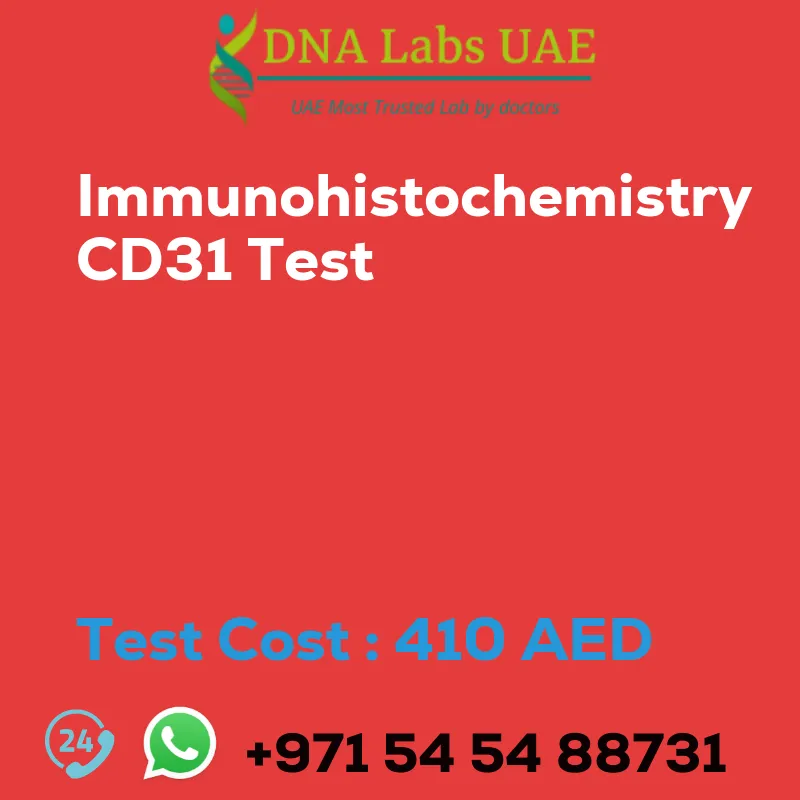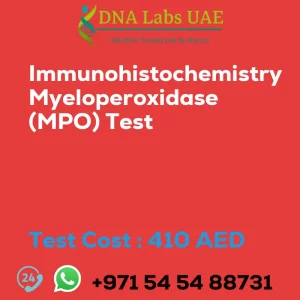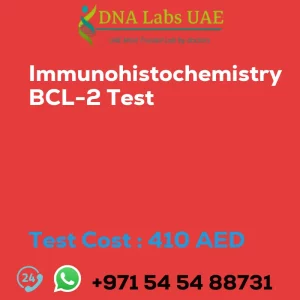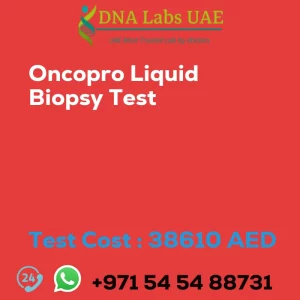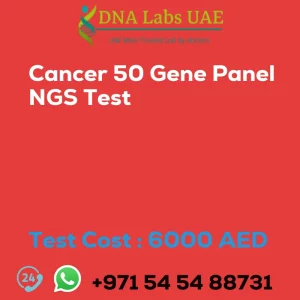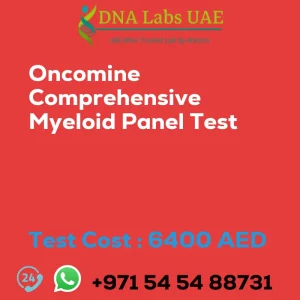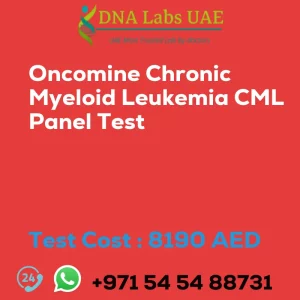IMMUNOHISTOCHEMISTRY CD31 Test
At DNA Labs UAE, we offer the IMMUNOHISTOCHEMISTRY CD31 test at a cost of AED 410.0. This test is used for diagnosing cancer and is conducted by our team of experienced oncologists and pathologists.
Test Components and Price
The IMMUNOHISTOCHEMISTRY CD31 test is priced at AED 410.0. It requires a sample of tumor tissue, which should be submitted in 10% Formal-saline or a Formalin fixed paraffin embedded block. The sample should be shipped at room temperature. Additionally, a copy of the Histopathology report, site of biopsy, and clinical history should be provided.
Report Delivery
The report for the IMMUNOHISTOCHEMISTRY CD31 test is delivered daily by 6 pm for samples, while the report for tissue biopsies may take up to 5 days. For tissue large complex samples, the report may take up to 7 days.
Method and Test Type
The IMMUNOHISTOCHEMISTRY CD31 test is performed using immunohistochemistry, which is a technique used to detect and localize specific proteins in tissue sections using antibodies. This test specifically identifies and quantifies endothelial cells in tissue samples. It is commonly used to study angiogenesis, vascular development, and pathological conditions such as tumor angiogenesis.
Pre Test Information
Prior to the IMMUNOHISTOCHEMISTRY CD31 test, it is important to provide a copy of the Histopathology report, site of biopsy, and clinical history.
Test Details
CD31, also known as platelet endothelial cell adhesion molecule-1 (PECAM-1), is a transmembrane glycoprotein expressed on the surface of endothelial cells. It plays a role in cell adhesion, leukocyte transmigration, and angiogenesis.
The CD31 test using immunohistochemistry involves the deparaffinization and rehydration of tissue sections. Antigen retrieval is then performed to expose the CD31 protein epitopes. The tissue sections are incubated with a primary antibody specific to CD31, followed by a secondary antibody conjugated to an enzyme or fluorochrome. This allows for the visualization of CD31 expression in the tissue.
The CD31 test can be evaluated visually using a microscope or quantified using image analysis software. The intensity and distribution of CD31 staining provide information about the presence and density of endothelial cells in the tissue sample.
Applications
The CD31 immunohistochemistry test is commonly used in research and clinical settings to study angiogenesis, tumor biology, and vascular diseases. It helps researchers and pathologists understand the role of endothelial cells in various physiological and pathological processes.
| Test Name | IMMUNOHISTOCHEMISTRY CD31 Test |
|---|---|
| Components | |
| Price | 410.0 AED |
| Sample Condition | Submit tumor tissue in 10% Formal-saline OR Formalin fixed paraffin embedded block. Ship at room temperature. Provide a copy of the Histopathology report, Site of biopsy and Clinical history. |
| Report Delivery | Sample Daily by 6 pm; Report Block: 5 days Tissue Biopsy: 5 days Tissue large complex : 7 days |
| Method | Immunohistochemistry |
| Test type | Cancer |
| Doctor | Oncologist, Pathologist |
| Test Department: | |
| Pre Test Information | Provide a copy of the Histopathology report, Site of biopsy and Clinical history. |
| Test Details |
CD31, also known as platelet endothelial cell adhesion molecule-1 (PECAM-1), is a transmembrane glycoprotein that is expressed on the surface of endothelial cells. It plays a role in cell adhesion, leukocyte transmigration, and angiogenesis. Immunohistochemistry (IHC) is a technique used to detect and localize specific proteins in tissue sections using antibodies. The CD31 test using immunohistochemistry is commonly used to identify and quantify endothelial cells in tissue samples. It can be used to study angiogenesis, vascular development, and pathological conditions such as tumor angiogenesis. To perform the CD31 immunohistochemistry test, tissue sections are first deparaffinized and rehydrated. Antigen retrieval is then performed to expose the CD31 protein epitopes. The tissue sections are then incubated with a primary antibody specific to CD31, followed by a secondary antibody conjugated to an enzyme or fluorochrome. This secondary antibody binds to the primary antibody, allowing for the visualization of CD31 expression in the tissue. The CD31 test can be evaluated by visual inspection using a microscope or quantified using image analysis software. The intensity and distribution of CD31 staining can provide information about the presence and density of endothelial cells in the tissue sample. The CD31 immunohistochemistry test is commonly used in research and clinical settings to study angiogenesis, tumor biology, and vascular diseases. It can help researchers and pathologists understand the role of endothelial cells in various physiological and pathological processes. |

